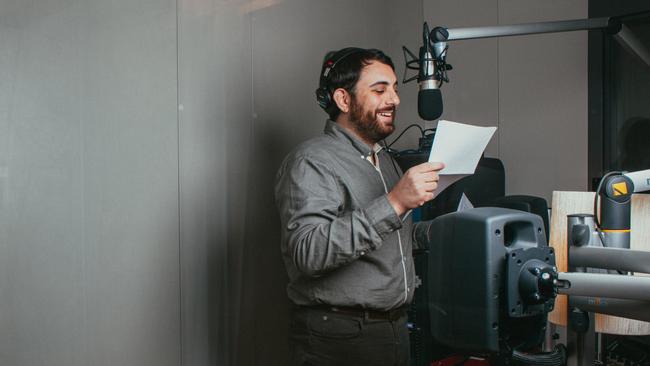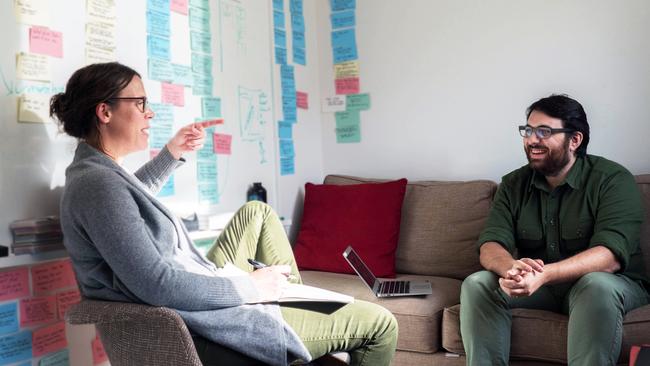S-Town creator Brian Reed turns journalism on itself in new podcast series
Brian Reed revisits the series that launched him into podcast superstardom in an attempt to assess if journalism is still fit for purpose in a deeply divided society.

“Serial added a new profile picture.”
I distinctly remember the moment this update appeared in my Facebook feed, where we all hung out online in 2017.
The global smash-hit podcast was on something of a hiatus after a second season, having totally transformed the medium – and listeners were desperate for more.
This was that “more”, I was sure of it. Serial’s distinctively simplistic cover art – a stack of black tiles with a red-and-white ‘S’ emblazoned on the top – had been replaced by a floral design twisted around a clock face.
I remember running to the kitchen off the newsroom where I was working at the time and giddily asking a colleague if they’d seen the update too.
They had. Like I said, everyone was on Facebook then.
S-Town was touted as the long-awaited follow-up to Serial: acting on a tip sent by eccentric horologist John B. McLemore, NPR producer Brian Reed set about investigating an alleged murder in a small Alabama town. McLemore called it “Shit-town”, hence the name.

In the first few episodes, Reed’s investigation was punctuated by McLemore’s long, rambling soliloquies about the hometown he claimed to hate and the many reasons why.
But when McLemore unexpectedly died by suicide, the show went on.
The series transformed into an investigation not of murder, but of John B. McLemore, exposing intimate details about everything from his financial situation to his sexual orientation with no real justification as to why, other than it was a good story to tell.
And it was a good story, superbly told.
But this pivot to aural portraiture was never fully justified to an audience who signed up for a murder investigation, and it was never really clear if McLemore had consented to his story being told in that way.

Australian journalist Gay Alcorn penned one of the most-scathing reviews of S-Town for The Guardian Australia, calling the series “morally indefensible”.
Now, like some kind of masochist, Brian Reed is revisiting the series that launched him into podcast superstardom in an attempt to assess if journalism is still fit for purpose in a deeply divided society.
The first episode of Question Everything features Alcorn – whose feelings about S-Town are as strong now as they were in 2017 – in conversation with Reed, who’s admirably humble and introspective after almost a decade of trying to prove S-Town is journalism, actually.
Subsequent episodes follow a similar format, though the subject matter is significantly expanded from Reed’s own work, and feature the likes of Pulitzer Prize-winning journalist Barton Gellman, who sensationally quit journalism in January to continue “the fight for democracy” at a think tank.
Some personal news. I’ve spent three years writing about an existential threat to the rule of law. I’ve decided to get off the sidelines. I have resigned from The Atlantic and joined the leadership team at the @BrennanCenter in the fight for democracy. https://t.co/a2utjly137
— Barton Gellman (@bartongellman) January 22, 2024
Those are fascinating conversations produced in Reed’s typically sophisticated style.
But the series takes an S-Town-worthy detour out of the gate, in an episode called Drinks for Five.
It’s a throwback to the early 2000s TV show featuring a revolving guest list of celebrities chatting over dinner, but, in this case, it’s a handful of prominent journalists trading war stories and reflections over mint juleps.
It would have been a fantastic way to round out the project, but as the second episode, it feels like a handbrake on a series that’s still building momentum.
Still, it needn’t be a reason not to give Question Everything a spin – just make a mental note to come back to episode two at the end, when the big ideas posed in the series have had a chance to percolate.
Kristen Amiet is the producer of The Australian’s daily news podcast The Front. Question Everything is available now wherever you listen to podcasts.


